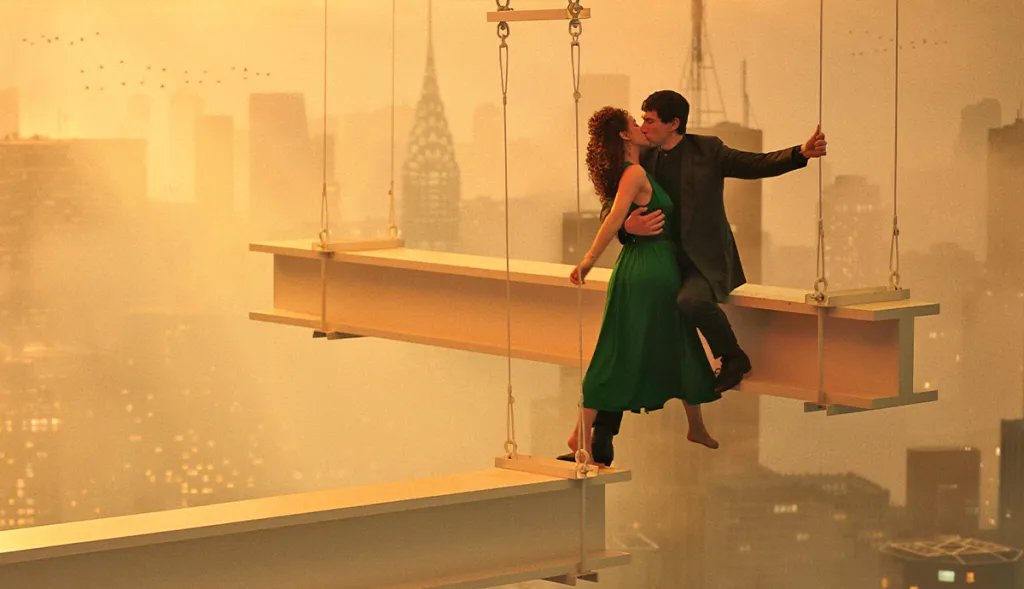Megalopolis and more.
Choice Critics’ Choice
Arts journalism and criticism have changed a lot since I started reading it decades ago. What drew me to it all those years back wasn’t the four-stars/“thumbs up,” or the “Read/See/Hear This!” recommendations. But the effort a writer took to make sense of it all: What does this or that production of Hamlet or Death of a Salesman have to say to us in 2024? What makes Chuck Berry’s music vital and alive 70 years later? How do Cezanne’s landscapes still help us see the world in new ways?
With the internet-driven changes to journalism in the last few decades, criticism like this is harder and harder to find. I still have a cadre of go-to writers, but many of them are behind paywalls (I want to support journalism, but subscribing to 14 newspapers and magazines….?). Thank goodness for The New Yorker’s relatively new podcast, Critics at Large, which just celebrated it’s one-year anniversary. In each episode, three of my favorite New Yorker writers— Vinson Cunningham, Naomi Fry, and Alexandra Schwartz—do a deep dive into a particular issue or topic via a new movie, book, song or TV show.
Recently, the trio discussed the evolution of the “Wall-Street Bro” as seen in the HBO series, Industry, comparing it to past images in Oliver Stone’s Wall Street and other finance films like Margin Call and American Psycho. Along the way, they refer to Edith Wharton’s Custom of the Country, and the recent internet meme Man in Finance.
It’s whip-smart, funny and insightful.
The Coast Starlight
Unless you're Alfred Hitchcock and you want to turn some Strangers on a Train into murderous co-conspirators, a 34-hour train ride isn't exactly ripe for a realistic drama. Passengers pretty much mind their own business. But Keith Bunin's wonderful play, The Coast Starlight, which closes its run on Oct 6th at the Milwaukee Repertory Theatre, sees drama in the quiet glances and silent speculations of six strangers riding coach.
Jack Ball, Emily S. Chang and Kelley Faulkner in the Milwaukee Rep's The Coast Starlight.
As Bunin says in a promotional video for the play's New York production, travelers are "alone a lot, but alone in public....I wanted to write a play in which the imagined conversations or the fantasies people have about each other are given a kind of theatrical life." To do this, he has his characters speak mostly in what grammar nerds might call "the past conditional." In plain terms, they tell the audience what they were thinking of saying: "If I had said to him..." or "I might have told her..."
And so the stories of the six passengers unfold. T.J. (Jack Ball) is a nervous young soldier who, we eventually discover, is considering going AWOL. Jane (Emily S. Chang) is the artist who sketches as they ride. Noah (Justin Huen) is the veteran who has something to say about T.J.'s decision. Ed (Jonathan Wainwright) and Anna (Yadira Correa) offer their own stories. And Liz (Kelley Faulkner) bursts into the quiet solitude of the trip with an off-the-rails phone call about her recent humiliating break up.
Bunin's "concept" is much deeper than a theatrical trick. All of his characters are in a liminal space, poised for a transition. The ethereal setting--lights, set and video designed by Jason Fassl--manifests the conditional story we witness. As the ghost says to Scrooge, these are things that "might have been"--conversations and conflicts that could have happened, could have changed lives. Director Mark Clements creates a sort of dream state that hovers between that fantasy and the characters’ lived reality. It’s well worth the trip.
Megalopolis
Nathalie Emmanuel and Adam Driver in Francis Ford Coppola's Megalopolis.
To see or not to see. That is the question. Francis Ford Coppola's long-awaited film, Megalopolis, said to be his swan song, is finally in theaters. In fact, it's in a lot of theaters--not just art-house venues appealing to the cinema cognoscenti, but big multiplexes usually catering to date-night material. There aren't, however, a lot of people in those theaters. It played in over 2,000 theaters last weekend and grossed an embarrassing $4 million. The empty houses are even fodder for late-night talk show jokes.
I will see it. And while I might be tempted to write about it after the fact, I'll instead give a thumbs up on blind faith. Not that I believe it will be a great movie, but because the work of an artist like Coppola deserves to be seen and talked about. The movies were a different business 40 years ago, when Coppola first started thinking about this film. Along with his masterpieces--Godfather Parts 1 and 2, Apocalypse Now--he is known for idiosyncratic films that turned out to be quirky flops. Megalopolis is apparently one of those. But it is also likely to be innovative and thoughtful, the work of a mind always trying to find new ways of expressing cinematic ideas.
Three Sisters
Natasha Lyonne, Elizabeth Olsen and Carrie Coon in His Three Daughters.
I had never heard of Azazel Jacobs until I happened on his film, His Three Daughters, in my Netflix cue. But he is not a fledgling director making his debut. A regular on the festival circuit, he has been making films for two decades, and His Three Daughters, which he wrote and directed, marks him as a major talent. It is an intimate--even claustrophobic--family drama that features a stellar ensemble. I have a feeling that actors will be lining up to work with him on his next project.
The lucky ones this time around are Carrie Coon, Natasha Lyonne and Elizabeth Olsen (who has worked with him on the 2019 series, Sorry for Your Loss). They play three estranged sisters who arrive to care for their ill father during his final days (Jay O. Sanders, appearing only briefly in a heart-rending scene). There are no fancy visuals here--the action takes place almost entirely in a cramped Manhattan apartment. But Jacobs and his actors capture their characters and their family dynamics beautifully. In its most revealing and raw moments, it's writing worthy of Chekhov or the great Method-inspired directors like John Cassavetes. But even they wouldn’t have conceived a drama that leaps transcendently into fantasy and reverie as His Three Daughters does in the final fifteen minutes.
Rest in Peace Maggie Smith
By now, I’m sure you’ve probably spent some time watching Maggie Smith’s Downton Abbey bon mots, which have circulating online since her death September 27th. (One of my favorites: “I’m so looking forward to seeing your mother. When I’m with her I’m reminded of the virtues of the English.” “But she’s American.” “Exactly.”) But to appreciate the breadth of Smith’s deep talent, you should look to her past. In 1965, she played Beatrice opposite her husband at the time, Robert Stephens, in Franco Zefferelli’s production of Much Ado About Nothing. And if you want a sample of her quiet intelligence, there’s no better example than this BBC production of one of Alan Bennett’s monologues from Talking Heads. Here she plays the disaffected alcoholic wife of a British vicar.
Have a good week.



